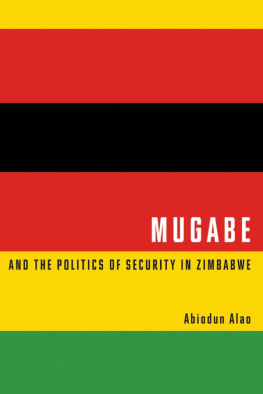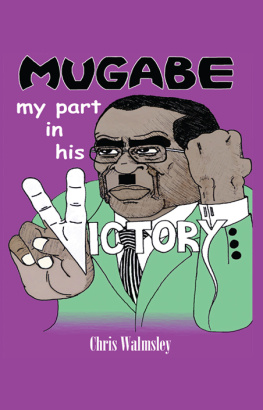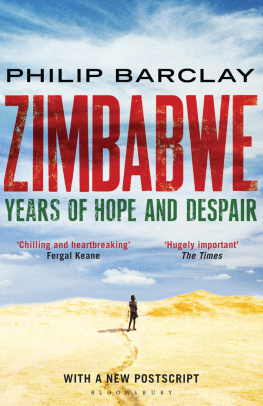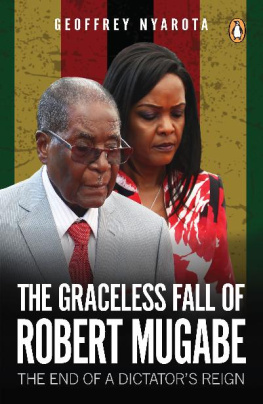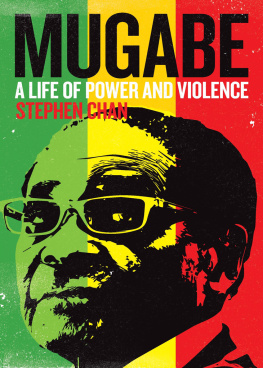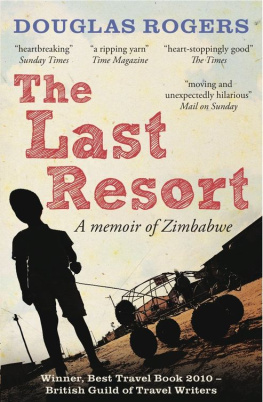Praise for Where We Have Hope:
A gripping and heartbreaking narrative of a wonderful country in shackles.
The Legal Intelligencer
A remarkable odyssey... harrowing and deeply disturbing... Meldrums ability to stay alive and focused during this period is a tribute to his indefatigable spirit, and his crisp narrative is remarkably free of rancor toward those who wreaked havoc around him. Even more amazing were the many courageous opponents of the Mugabe regime who faced harassment, police assault, and imprisonment for daring voice their disgust with the deterioration of Zimbabwe. Their voices, while censored at home, speak loud and clear through Meldrums reporting.... A compelling and, ultimately, heartbreaking story that demands to be read by anyone concerned about contemporary Africa.
Kirkus Reviews (starred review)
He does not spare us from the brutality and wickedness that is gripping Zimbabwe, but by telling the stories of its people and allowing us to hear their voices, he shows that amidst the repression and cruelty of Mugabes state, there is courage, dignity, and above all real hope.
Rageh Omaar, BBC journalist
Marvellous, rich and rewarding... A compelling book.
The Times (London)
Meldrums writing is driven by a passion for the country and its people.... Essential reading.
The Observer (London)
Meldrums vivid and insightful reflections will enrich any readers understanding of this sorry chapter of African history.
Literary Review
A story of disillusion, chaos, violence, extraordinary courage and some hope.
The Guardian
What makes Meldrums story compelling is his honesty.
The Independent
Andrew Meldrum has been a witness to the unfolding, over the last quarter of a century, of one of the most remarkable stories of modern times.... An invaluable record as well as a compelling read... His portrayal of the many heroic Zimbabweans who represent, let us hope, the future of the country once the Mugabe dictatorship is buried, is generous, moving and inspiring.
The Tablet
An important book... to be so reminded of this dire chapter in African history is a sad but salutary and, in the end, strangely hopeful experience.
Cond Nast Traveler
Where We Have Hope
Where We
Have Hope
A MEMOIR OF ZIMBABWE
ANDREW MELDRUM
Copyright 2004 by Andrew Meldrum
All rights reserved. No part of this book may be reproduced in any form or by any electronic or mechanical means, or the facilitation thereof, including information storage and retrieval systems, without permission in writing from the publisher, except by a reviewer, who may quote brief passages in a review. Any members of educational institutions wishing to photocopy part or all of the work for classroom use, or publishers who would like to obtain permission to include the work in an anthology, should send their inquiries to Grove/Atlantic, Inc.,
841 Broadway, New York, NY 10003.
Originally published in 2004 in Great Britain by
John Murray Publishers, a division of Hodder Headline
Published by arrangement with Hodder Headline
Printed in the United States of America
FIRST GROVE PRESS EDITION
Library of Congress Cataloging-in-Publication Data
Meldrum, Andrew.
Where we have hope : a memoir of Zimbabwe / Andrew Meldrum.
p.cm
eBook ISBN-13: 978-1-5558-4690-9
1. ZimbabwePolitics and government1980-2. ZimbabweSocial conditions1980
3. Meldrum, Andrew. 4. Foreign correspondentsZimbabweBiography.
5. AmericansZimbabweBiography. I. Title.
DT3000.M45 2005
968.91051092dc22
[B] 2004065733
Grove Press
an imprint of Grove/Atlantic, Inc.
841 Broadway
New York, NY 10003
Distributed by Publishers Group West
www.groveatlantic.com
06 07 08 09 10 10 9 8 7 6 5 4 3 2 1
TO MY PARENTS, WHO INSTILLED IN ME
THE VALUES THAT HAVE BEEN THE FOUNDATION FOR MY WORK
TO MY WIFE, DOLORES CORTES,
WHO ENCOURAGED ME THROUGHOUT
TO THE PEOPLE OF ZIMBABWE,
WHO HAVE INSPIRED ME
CONTENTS

ETCHED IN MY MEMORY
My expulsion from Zimbabwe was physical and frightening, but the actions of Mugabes agents could not change my deep feelings for the country. Aaron Ufumeli/AFP/Getty Images
You are continuing to write bad things about Zimbabwe, the immigration officer says to me, leaning toward me and narrowing his eyes in a menacing way. Over the past year I have been persistently harassed by President Robert Mugabes government. I have been arrested, jailed, put on trial, and, eventually, acquitted. Now sitting in Linquenda House, a shabby government office block in central Harare, I dont want to let the officer suggest my reporting has been less than honest and fair.
Not about Zimbabwe, I counter. My stories may be critical of the government, but theyre not bad about Zimbabwe. Ive written the truth about whats going on here. You and I both know it.
We both also know that my articles in the Guardian over the past three years have infuriated Mugabe and his ministers. That is what this meeting is all about. My reports have highlighted torture, rape, and murder by state agents. The government has categorically denied any such abuses, but my stories, and those of other journalists, have conclusively uncovered systematic state violence. Through my articles I have tried to hold the government accountable for its actions and to highlight the brave struggle for a return to democracy by many Zimbabweans. Supporters of the opposition party, leaders of womens groups, human rights activists, church leaders, and ordinary people have all made their own stands for democracy and have courageously faced frightening repression. Far from writing bad things about Zimbabwe, by writing about their heroic efforts in the face of terrible threats and violence from the state, I believe I have been reporting the best of Zimbabwe.
I am aware that this is not the time for a discussion of my writing. Evans Siziba, the tall immigration officer with the threatening stance of a boxer, has been hounding me for a year. Ten days ago, Siziba turned up at my house at night. The quiet residential street was especially dark because the streetlights had not worked for nearly a year. When my wife, Dolores, walked down the drive to answer the gate, she was startled to see four plainclothes officers. Behind them were four vehicles, including a large van with blacked-out windows.
It could only mean they were planning to pick me up illegally. Over the past months, I had written many stories about Zimbabweans who had been taken from their homes by plainclothes government agents who beat and tortured them. We knew from the experience of friends that such shadowy night visits meant trouble.
In fact, Siziba was not an immigration officer at all. We knew from government sources that he was really an agent of the much-feared Central Intelligence Organization, Zimbabwes secret police, who answer directly to Mugabe and place agents in key government departments. I had interviewed many victims of CIO interrogations and seen their wounds: cigarette burns and open sores where electrodes had been placed on their fingers, toes, ear lobes, tongues, and genitals. Siziba had not come to my home to have a civilized conversation about my writing.


